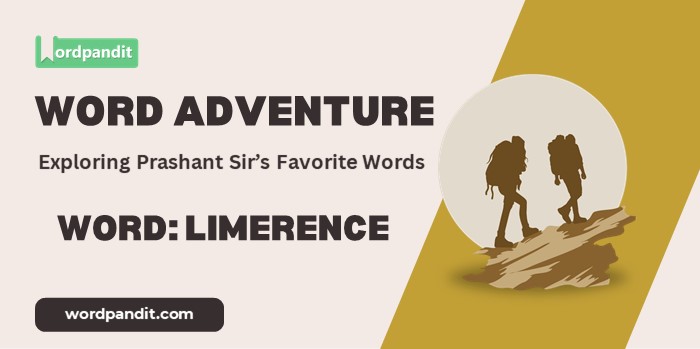Word Adventure: Limerence
The Headline
"Limerence: The Intoxicating Rollercoaster of Romantic Obsession"
The Scoop
In the vast lexicon of love, few words capture the intensity and all-consuming nature of romantic infatuation quite like 'limerence'. This relatively new term has quickly become indispensable in discussions about the psychology of love and attraction. Let's embark on a journey to understand this powerful emotional state that has inspired countless poems, songs, and sleepless nights.
Let's Break It Down
The Plot Thickens
'Limerence' is a fascinating example of a word created to fill a specific linguistic gap. Psychologist Dorothy Tennov coined the term in her 1979 book "Love and Limerence: The Experience of Being in Love" after years of studying romantic love and attraction.
Tennov created the word by combining elements of the words "limerick" and "adherence," though the exact reasoning behind this combination remains somewhat mysterious. What's clear is that she needed a term to describe the intense, sometimes irrational state of romantic infatuation that wasn't adequately captured by existing vocabulary.
Since its introduction, 'limerence' has gained traction in both psychological literature and popular culture. It's used to describe that heady, all-consuming state of early love or attraction, characterized by intrusive thinking about the object of one's affection, extreme sensitivity to their behavior, and a strong desire for reciprocation.
Word in the Wild
The Twist
Here's an intriguing aspect of 'limerence': while it's often associated with the positive, euphoric feelings of new love, psychologists have noted that it can have a dark side. In extreme cases, limerence can be debilitating, leading to obsessive behavior, anxiety, and even depression if the feelings aren't reciprocated. This duality makes 'limerence' a particularly nuanced term, capturing both the ecstasy and potential agony of intense romantic attraction. It reminds us that language, like love itself, can contain multitudes.
Make It Stick
Limerence: When Cupid's arrow strikes and your heart goes into overdrive!
Your Turn
Think back to a time when you experienced limerence. How did it feel? How did it affect your daily life and decision-making? If you're comfortable, share your limerence stories in the comments below. Let's explore how this intense emotional state manifests in different people's lives and perhaps gain some insights into the nature of romantic attraction!
Down the Rabbit Hole
- Curious about the psychology of love? Look into concepts like 'attachment theory', 'the triangular theory of love', or 'love languages'.
- Interested in other recently coined psychological terms? Explore words like 'nomophobia', 'FOMO', or 'cybercondria'.
- Want to dive deeper into the literary expressions of love? Investigate famous love poetry or novels that capture the essence of limerence.
The Last Word
As we conclude our exploration of 'limerence', I hope you've gained a new appreciation for this powerful word and the complex emotional state it describes. It stands as a testament to the ever-evolving nature of language, particularly in the realm of human emotions. The next time you find yourself in the throes of an intense romantic infatuation, remember – you're not just falling in love, you're experiencing limerence! Until our next word adventure, this is Prashant from Wordpandit, encouraging you to embrace the full spectrum of emotions that our rich linguistic tapestry allows us to express!












